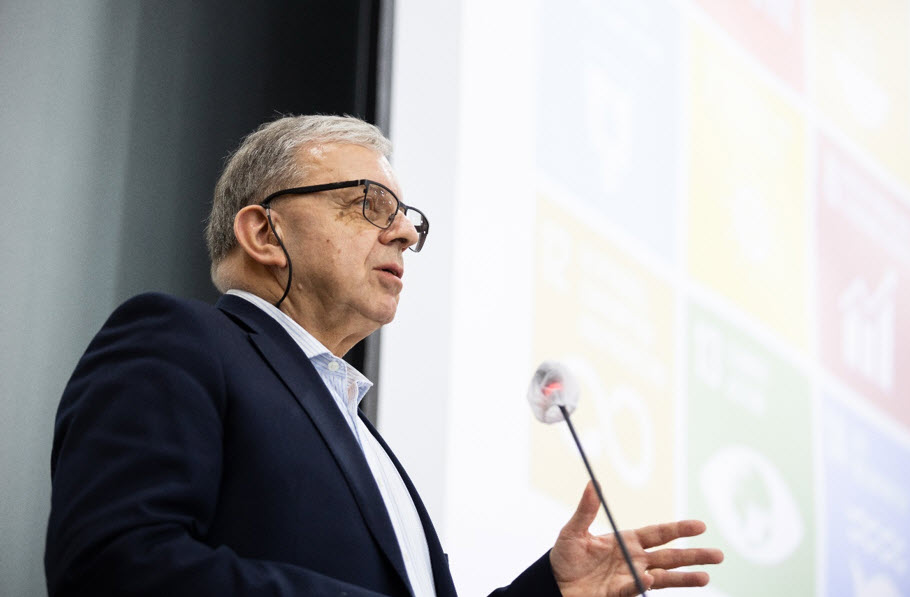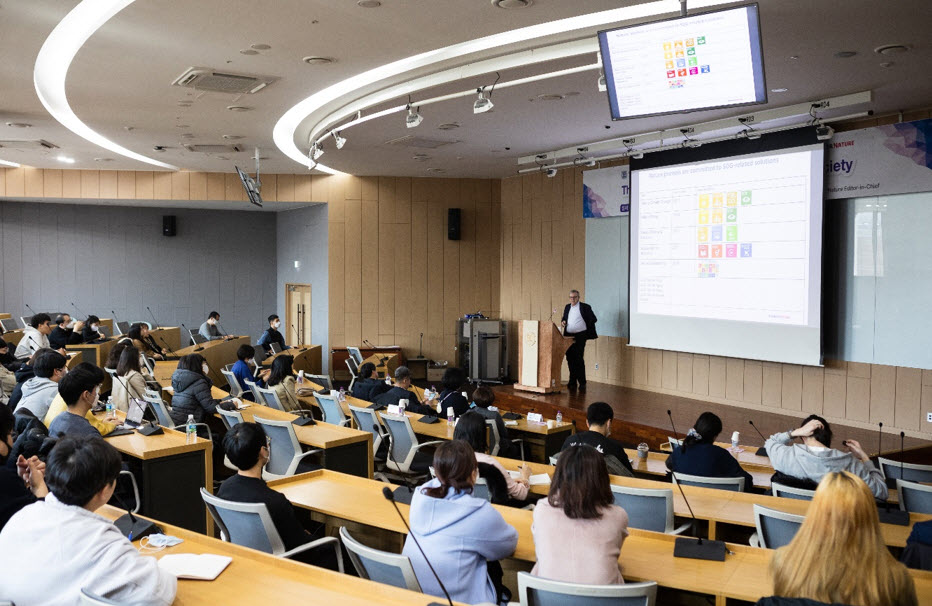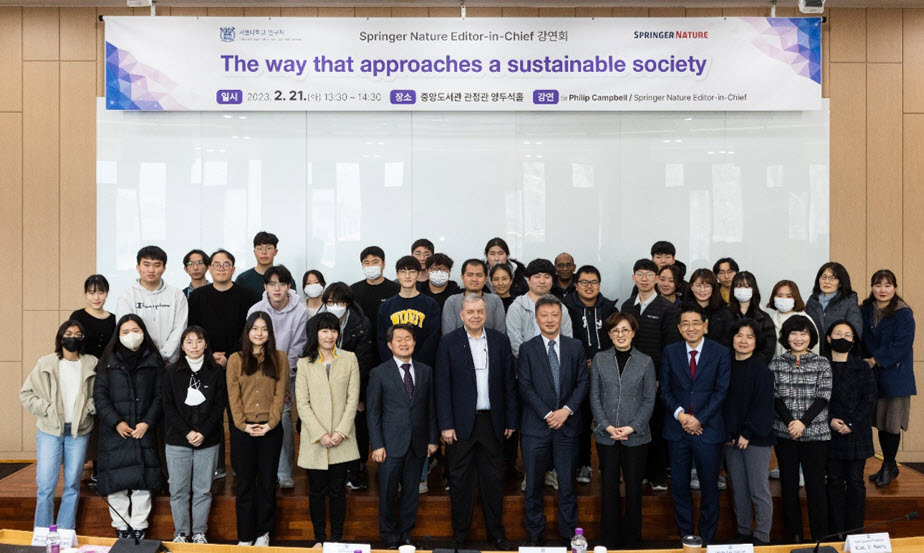On February 21, the SNU Office of Research Affairs hosted “The Way That Approaches a Sustainable Society,” inviting Sir Philip Campbell, former editor-in-chief of Nature, as the speaker. The lecture took place at the Yang Doo Suk Hall of Kwanjeong Library. Currently editor-in-chief of Springer Nature, the company in charge of publishing Nature, Mr. Campbell voiced his thoughts on the importance of scientific research and its role in bringing sustainability to the forefront of academic discussions.

The lecture “The Way That Approaches a Sustainable Society” by Sir Philip Campbell
Springer Nature’s Efforts toward Sustainability
In the first part of the lecture, Mr. Campbell outlined the ways Springer Nature is addressing the concept of sustainability in its journals. One of the ways is to publish research covering the United Nations Sustainable Development Goals (SDGs). In 2015, the UN General Assembly established 17 SDGs, which were the results of a global consensus that sustainability should be a priority for national policy making. Mr. Campbell said that Springer Nature is continuing to publish new journals that include articles centered on realizing the SDGs. Nature Energy, for instance, is a journal established in 2016 to address SDGs 7, 11, and 13, which respectively focus on affordable and clean energy, sustainable cities and communities, and climate action.
Mr. Campbell stated that SDGs are becoming a major consideration of scientific research, as SDG-associated articles account for 13% of research literature today and there is an unprecedented increase in the number of SDG-related papers. He said that Springer Nature is also noticing the change and trying to be more committed to fulfilling its responsibilities for the oncoming generation. Recently, for instance, Springer Nature installed a database called Dimensions, which focuses on collecting information and documents on sustainability, providing researchers with new fields and themes of study.

Dr. Philip Campbell explaining Springer Nature’s sustainability-related activities
Providing Insights for Society
Mr. Campbell went on to express his thoughts on what researchers should consider in order to contribute to a sustainable society. He mentioned that conventionally, the academic world has regarded the citation index as the primary criteria in evaluating an article’s impact. Mr. Campbell’s opinion, however, is that social impact should be the new standard for judging the notability of academic papers. He said that although quantifying social impact and creating an index for it would be difficult, scholars should still consider social impact as a significant part of their research agenda.
How Researchers Can Improve Their Social Impact
The lecturer then provided some tips that researchers can consult to increase the social impact of their research. To make sure they are fulfilling their social responsibility, researchers can pursue research directly connected to global initiatives, such as the UN SDGs. Another tip was increasing the openness of projects. Mr. Campbell said that researchers should open their data to the public, guaranteeing that diverse parties can easily access the important details of the research. Ensuring the engagement of stakeholders from the very beginning of the project is one clear way to enhance the openness of a research.
Mr. Campbell added that the most effective way to increase the level of social contribution is to conduct interdisciplinary projects. He mentioned that interdisciplinary research is a laborious job in that scholars must dedicate considerable time to gain an understanding of other fields before conducting the main research. This, however, is the process that people should spend the most time on, according to Mr. Campbell. He emphasized that social contribution is most likely to take place when scholars of humanities, social sciences, and natural sciences gather and work toward a common goal, but this is only possible when ample time is spent understanding and appreciating each other’s approaches.

After the lecture “The Way That Approaches a Sustainable Society”
Mr. Campbell’s lecture on the paradigm shift of scientific research was insightful to the members of the SNU academic community. The faculty and the students alike learned that while citation indices and academic prominence are important in research, it is just as crucial to recognize their social responsibility as researchers and make full use of their expertise to contribute to a brighter, more sustainable society.
Written by Seunghwan Oh, SNU English Editor, ascendhwan@snu.ac.kr
Reviewed by Professor Travis Smith, Department of Asian Languages and Civilizations, tlsmith@snu.ac.kr

